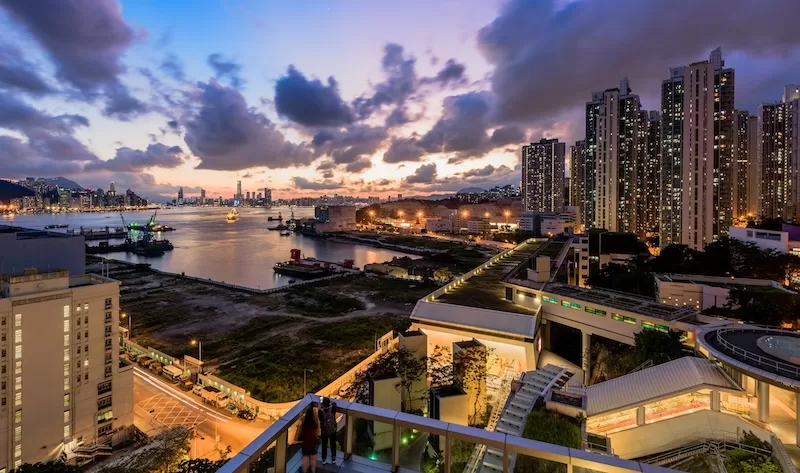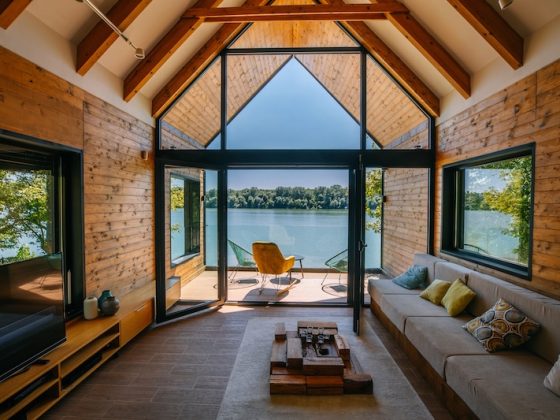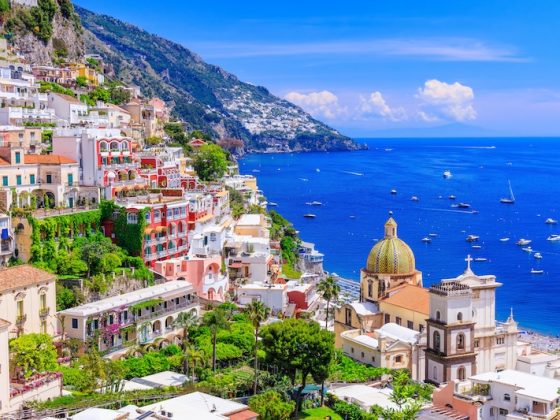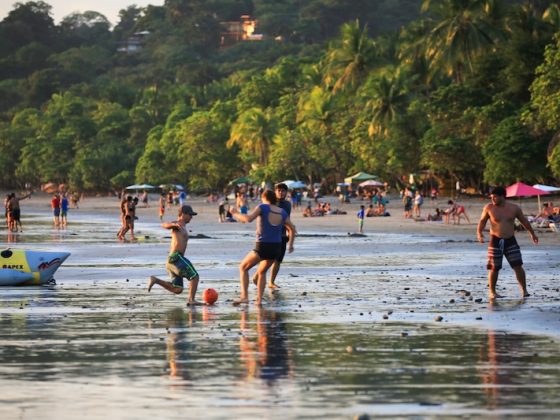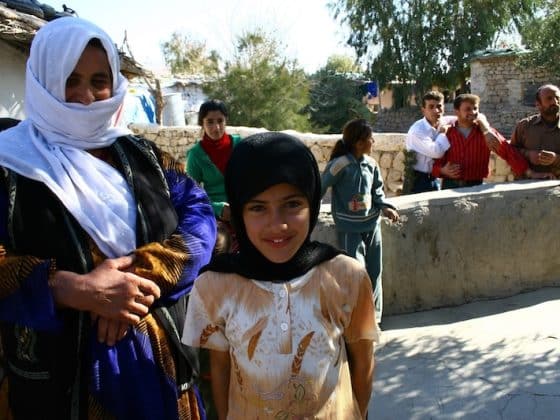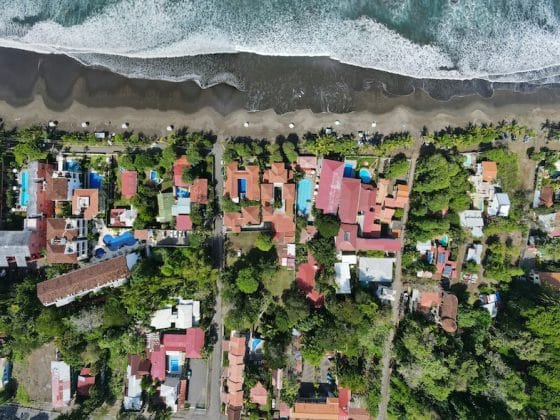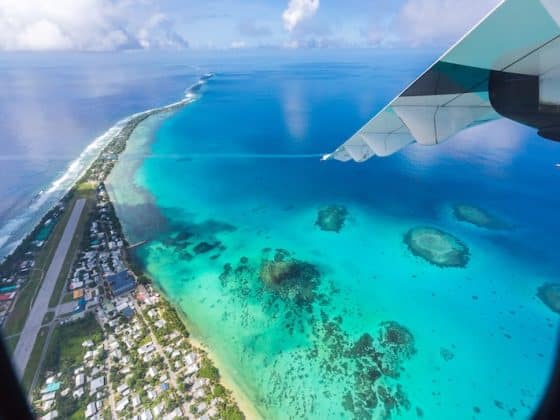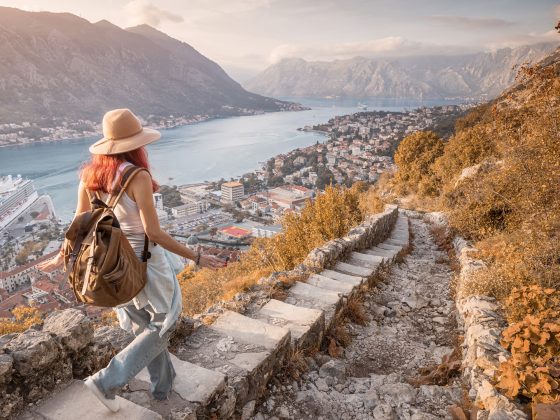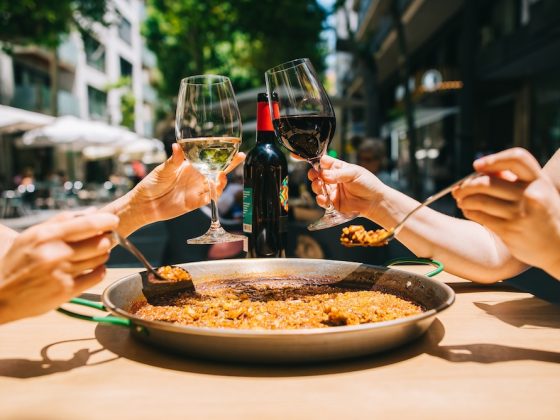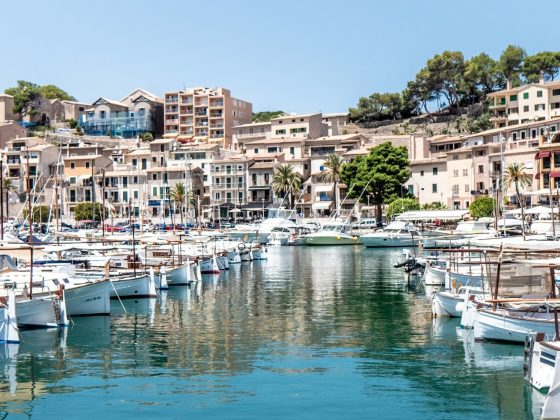Introduction
Expat life in Panama begins, funnily enough, with a shift in your soundtrack. Morning roosters replace car horns. Mangoes hit tin roofs after a warm night. Coffee is transported from a hillside not far from the window. Daily life takes on a softer tempo that still surprises newcomers who arrive with a carry-on full of city urgency.
Yet this change in rhythm sits beside practical choices. Panama City rises in glass and steel along the Pacific, offering convenience at a premium. In the highlands, cloud forest trails and close-knit communities deliver cooler air and lower monthly expenses. Coastal towns trade supermarket variety for the luxury of walking barefoot from home to water. In a country this compact, where you decide to live shapes how much you spend and the kind of life you settle into.
People arrive chasing different futures: remote work that unlocks afternoons at the beach, retirement that feels more active than ever, or a fresh start in a place that welcomes newcomers. But soon enough, the dream becomes about numbers and neighborhoods. Rent ranges. Transport options. How far the budget stretches in each region. Where hospitals are. Whose market sells the produce that fits your habits.
This guide brings the essential details together: what housing costs look like, how utilities and groceries behave in different climates, which communities suit which lifestyles, and what it takes to settle in. Because moving abroad ismore than just relocating to a new place. It’s building a life there, step by lived-in step.
Why Expat Life in Panama Holds Appeal
A mix of practical strengths drives Panama’s popularity among expats. The economy uses the US dollar alongside the Balboa which simplifies spending and financial planning for many newcomers. Modern infrastructure supports daily life in major regions. Diverse climates offer real choice: cooler air at higher elevations or tropical warmth by the sea.
Panama ranks highly for expat happiness. Many say the social environment feels welcoming and the ease of settling exceeds expectations. The country’s size means short trips reveal entirely new landscapes. One week you might compare neighborhoods in Panama City. The next you are watching clouds drift over volcanic highlands or running errands by bicycle in a small coastal town.
Expat life in Panama offers flexibility. City buzz. Mountain calm. Ocean breeze. The question becomes: which version fits your vision of an ideal life best?
Cost of Living in Panama
Housing and utilities
Housing costs determine the entire feel of a budget. In Panama City, a furnished one-bedroom typically lands somewhere between $1000 and $1,600 USD per month, influenced by views, building age, and neighborhood prestige. Costa del Este and Punta Pacífica command the higher end. Casco Viejo, with renovated colonial apartments, blends charm with city pricing. In more local districts or older mid-rise buildings, prices drop.
Beyond the city limits the spectrum changes. Small mountain towns or quieter provincial cities offer one-bedroom rentals closer to $400 to $800 USD per month. A family home with a small garden might still sit below the cost of a compact condo in the capital.
Utilities depend on climate, building insulation and personal habits. In Panama City, electricity, water, garbage and internet together often land near $150 USD/month. Air conditioning bumps that number up. In breezier highland areas where natural cooling prevails, utility bills closer to $50 to $100 USD/month are common. A simple rule: if your chosen spot needs constant AC, add a buffer. If your windows frame cloud forest, you may save on electricity and spend instead on cozy blankets.
There is also the matter of HOA or condo maintenance fees in newer developments. Shared pools, elevators and security guards elevate comfort and cost alike. When calculating housing spend, include any building fees from the start so your budget reflects the real monthly number.
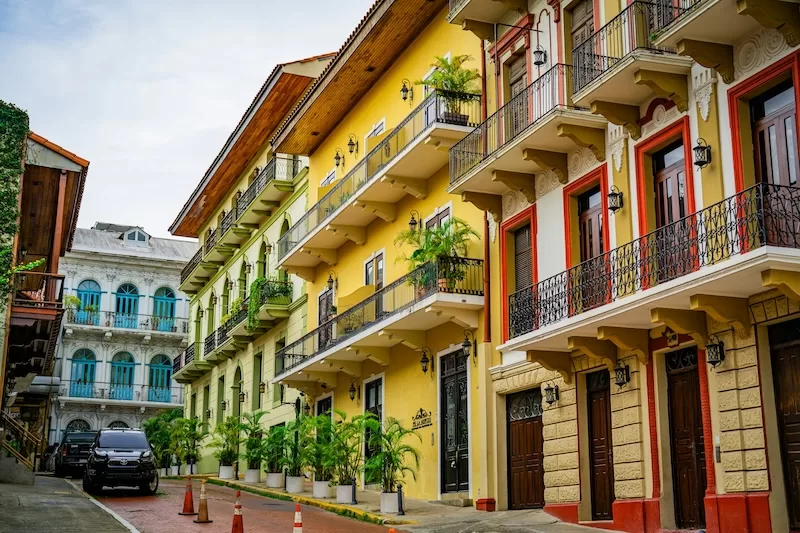
Food, transport and everyday expenses
Groceries and eating out set the tone of daily life. For a single person excluding rent, monthly expenses often range around $800 USD/month, depending on location and lifestyle. A family of four (excluding rent) hits roughly $2,890 USD/month.
Panama City supermarkets carry familiar imported items that stack up quickly at checkout. Local markets, however, offer fresh produce at friendlier prices. Rice sits at about $1.11 USD per pound, and a dozen eggs around $2.88 USD.
Dining out ranges widely. A beachfront ceviche stand keeps budgets light. International cuisines in expat-heavy areas resemble prices in North American cities. Choosing homemade fruit batidos instead of imported craft beers changes monthly math more than you might expect.
In Panama City, standard Metro and city-bus rides typically cost around $0.25 to $0.35 USD, while longer corridor or express routes may reach $1.00–$1.25 USD. Taxis and ride-shares fill the gaps. In smaller towns, transportation usually means walking, scooters or a single bus line that locals know by heart.
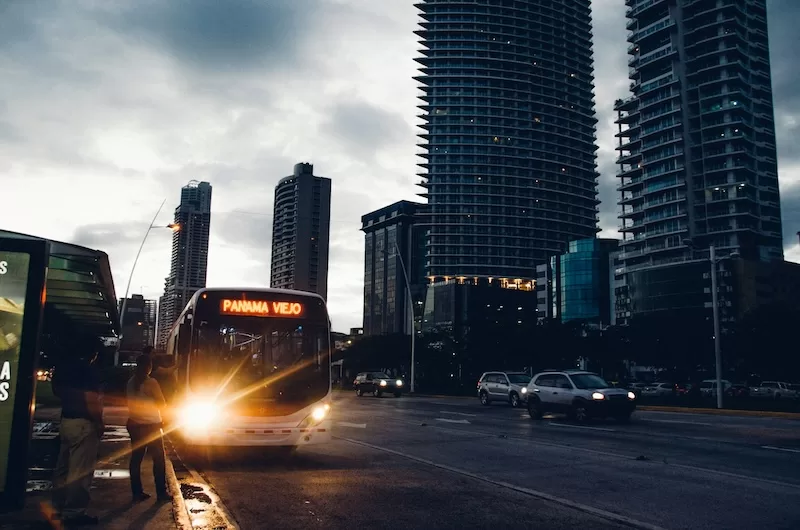
In regions outside the capital, like small towns or quieter provincial cities, monthly expenses of $800 to $1,500 USD often cover a comfortable lifestyle. Grow some herbs on the patio. Shop from the morning vegetable truck. Join neighbors for low-key evenings rather than pricey nights out. Cost becomes an extension of lifestyle choices rather than something dictated by the city itself.
Read More Like This: Cost of Living in Panama: How Far Your Money Can Take You
Visa, Residency and Legal Steps
Sorting out legal status is a key part of expat life in Panama. The country offers multiple pathways depending on your purpose. One popular route is the Friendly Nations visa which caters to nationals of many countries and ties in investment or professional connections. Another is the Pensionado programme for retirees with specified income.
To give concrete numbers: one guide lists proof of financial solvency, criminal records from your home country, a health certificate and zipping through registration in Panama for the Friendly Nations route. Investment-based options might require real estate purchases of $300,000 USD or fixed-term deposits in the same ballpark. From a timing perspective expect provisional residency first then permanent status after a couple of years in many cases.
Tax wise, Panama uses a territorial system: only income generated inside the country is taxed. Income earned abroad generally is exempt under certain conditions. That opens interesting options for remote workers and investors.
Where to Live: Top Regions for Expats
Choosing a home shapes the entire experience of expat life in Panama. Geography decides your grocery options, weekend rituals and even your friend group. The country may look compact on a map, yet every region has its own, unique vibe.
Panama City
The capital mixes glass-tower ambition with seaside breeze. Joggers and cyclists roll along the Cinta Costera each morning. Business centers hum around lunchtime. Sunsets glow behind skyscrapers while the smell of grilled fish drifts up from the waterfront.
Neighborhoods change character fast. Costa del Este feels polished and intentional, with high-rise apartments, international schools and cafés that serve flat whites and croissants. Punta Pacífica offers ocean views and quick hospital access. Casco Viejo brings a cobblestone maze of plazas, rooftop bars, galleries and restored facades.
Living here means convenience at your doorstep. Pharmacies on every block. Uber drivers arriving in minutes. Specialty food stores with imported cheeses and craft teas. Evenings can lead to rooftop jazz or a cinema night inside an air-conditioned mall.
But the tradeoffs are clear: heavier traffic, higher rents, and a pace that hardly resembles the slow-roll Latin lifestyle many imagine. Panama City is the right choice for those who like cities that feel alive seven days a week.
Best for:
• Remote workers craving fast internet and modern comforts
• Young professionals and entrepreneurs with global clients
• Families seeking international schools and healthcare close by
• New arrivals who want a soft landing before exploring smaller towns
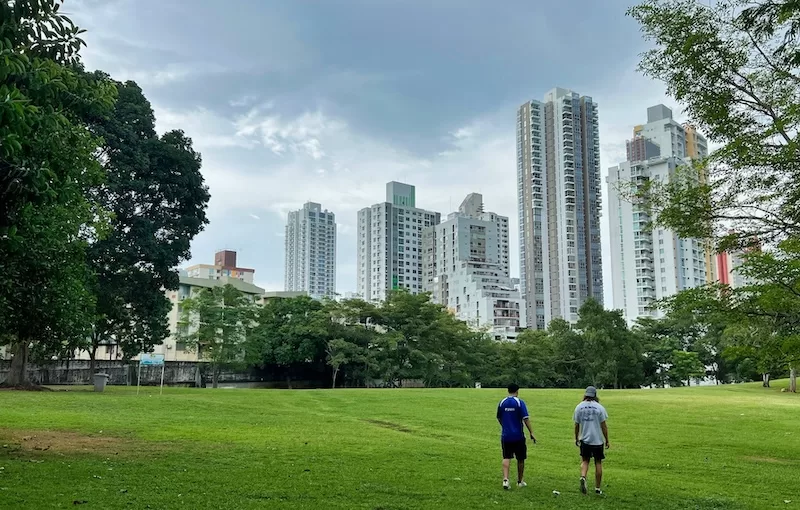
Highlands and mountain towns
Drive inland and the air feels instantly different. Boquete in Chiriquí stretches across green slopes at around 1,200 meters above sea level. Coffee is harvested just up the road. Neighbors wave longer. Farmers set up stalls bursting with avocado, papaya, and vegetables still damp from the mist.
Hiking trails weave through pine-touched air. Small cafés roast beans sourced from the surrounding hills. Evenings cool down enough for warm socks and fire pits. English is commonly heard in grocery aisles and at social meetups, though Spanish turns interactions from polite to personal.
Life in the highlands leans communal: art fairs, pickleball courts, book clubs, bakery gossip, charity fundraisers. The town takes care of its own. If you enjoy knowing your barista’s name, the highlands feel like home within weeks.
There is still variety within the region: David offers more urban services, while Volcán and Tierras Altas trade proximity for quieter nights and big garden plots. Grocery selection grows each year but remains less international than the capital.
Best for:
• Retirees and semi-retirees who want slower routines
• Garden lovers, hikers, and people who crave cooler air
• Community-seekers who enjoy familiar faces and local clubs
• Remote workers who want nature outside the window instead of traffic
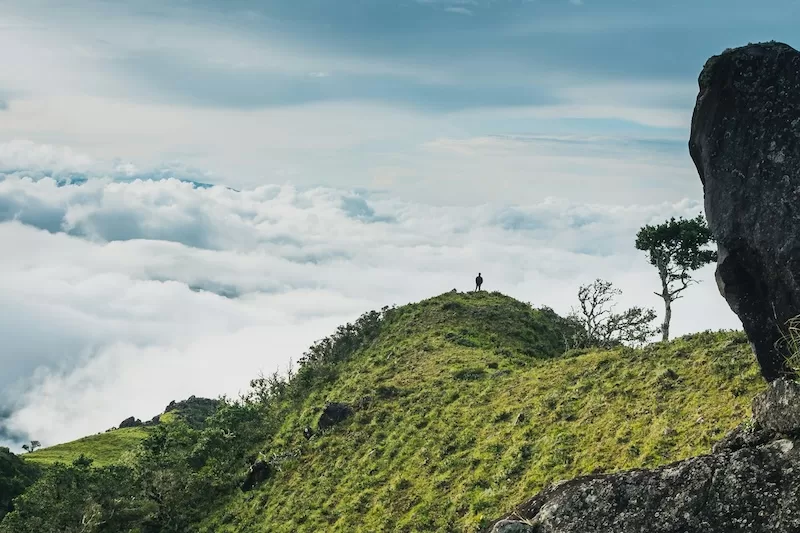
Coastal and beach areas
Homes in towns like Pedasí and Coronado sit steps from Pacific sandy stretches that never feel crowded. Afternoons invite a quick swim. Evenings slip into open-air dinners with salt clinging to the plates.
In Coronado, supermarkets and clinics give comfort to those who want beach life without losing convenience. Expats gather around golf courses, sunset social hours and weekend markets. Smooth highway access makes trips to Panama City doable when errands demand it.
Pedasí, farther along the Azuero Peninsula, feels smaller and more artistic. Surf lessons, fishing trips and community barbecues fill calendars. Life here depends more on habit and less on planning. You might bike to a bakery one morning and help a friend launch a boat the next.
Infrastructure can run thinner in remote coastal pockets. A craving for imported almond butter may require a longer drive. Internet speeds can fluctuate with island weather. But the exchange is powerful: sea air, horizon views and sun-wet laundry drying on the patio.
Best for:
• Surf-minded expats and ocean-energy enthusiasts
• Remote workers who want beaches as lunch breaks
• Retirees who prefer warmth and outdoor living
• Social types who enjoy shared meals with neighbors more than nightlife
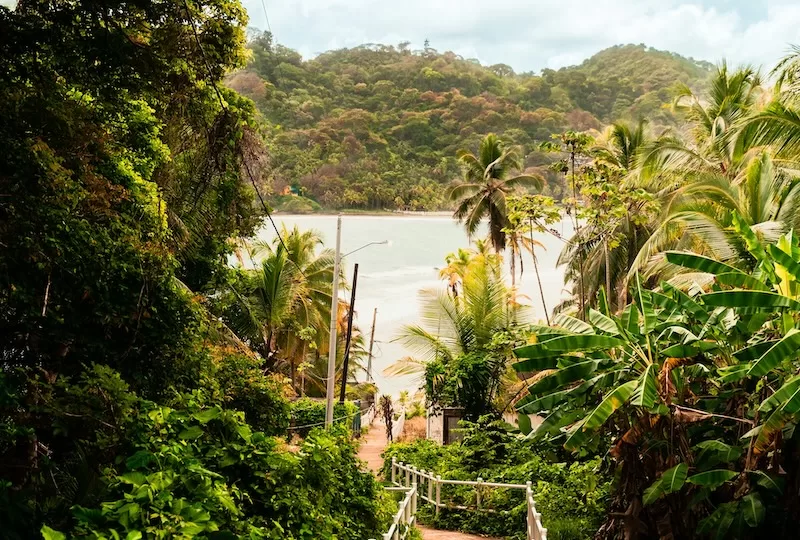
Choosing your version of Panama
| Region | Daily Rhythm | Main Advantages | What to Expect |
| Panama City | Fast and cosmopolitan | Services, schools, hospitals, jobs | Higher cost, traffic, city noise |
| Highlands | Cool, community-minded | Nature access, social clubs | Fewer big-box conveniences |
| Coast | Salt-air and slow mornings | Beaches, casual social life | Infrastructure tradeoffs |
Each offers a distinct flavor of expat life in Panama. Your choice depends on how you want mornings to feel and what you want evenings to look like. City convenience. Mountain air. Beach tranquility. The lifestyle comes first, then the address.
Moving with Kids: Schooling, Safety and Daily Routines
Families thrive in places that balance adventure with everyday structure. In Panama, that balance depends heavily on location choice.
International schools cluster in and around Panama City. They offer English-language instruction, recognized curricula, sports programs, and campus facilities familiar to global families. Tuition varies widely based on school reputation and grade level, with most fees landing between $5,000–$15,000 USD per year per child. These schools attract students from many countries, which helps children make friends quickly and adjust with confidence.
Outside the capital, education follows the national Spanish-language system. Classrooms tend to be more traditional and community centered. Homeschooled expat families and those with young children often find these settings rewarding, especially when supplemented with local language tutoring. Children become bilingual almost by accident once they join neighborhood games and festivals.
Life with kids here often feels outdoorsy. Weekends are filled with beach picnics, bike rides, hiking to waterfalls, and birthday parties where music plays loud and dessert includes fresh fruit. In smaller towns, neighbors watch out for each other. Familiar faces surround school pick-ups and park outings. In the capital, gated residential communities add a layer of security and convenience: playgrounds, pools, and sports facilities within walking distance.
If you are relocating as a family, consider:
• Proximity to hospitals and pediatric care
• Commutes during rush hour, especially for school runs
• How quickly your children may pick up Spanish
• Access to after-school activities and sports
• The age that feels right for entering local education
Family-oriented expats who choose carefully often say the same thing: life feels more connected here. Evenings stretch into the courtyard. School events introduce new friends. Children discover the joy of living in a place where adventure waits outside the front door.
Culture, Language and Integration in Daily Life
Settling into expat life in Panama means learning how each day feels. The culture blends Latin American warmth, Afro-Caribbean music traditions, Indigenous heritage, and a dash of international business influence that flows through the capital. Schedules stretch. Meals turn into conversations. Errands become social interactions.
Spanish shapes belonging. Ordering a smoothie in Spanish at the mercado earns a smile instead of a puzzled look. Practicing greetings with your neighbors turns into casual invitations to weekend barbecues. Even imperfect language efforts unlock small yet meaningful connections: the butcher who suggests the best cut of meat for a family dinner or the bus driver who reminds you where to hop off near home.
In popular expat zones English appears (in grocery stores with imported products, in tourist-facing cafés) but step just a few blocks away and Spanish becomes essential. Bank paperwork ties itself into knots without it. Municipal offices expect patience and face-to-face conversations. Asking a neighbor for help in Spanish opens doors and eases those inevitable bureaucratic days.
Social time works differently here. Tranquilo is more than a word. It is a philosophy that floats through daily life. A plumber may arrive later than planned yet stay until the job is perfect. A shop may open a little after the sign says it should. People greet each other fully before discussing business. In a world where everything tries to move fast, Panama reminds you to slow down.
Cultural immersion comes through the senses:
• The thump of tamborito drums echoing through a town plaza
• A stranger offering you a slice of fresh pineapple that tastes like pure sun
• Salsa swirling out of a doorway at night
• The smell of ropa vieja simmering in a family restaurant that feels like someone’s living room.
Community grows through proximity. In mountain towns, neighbors know who needs a lift to the market. On the coast, weekend beach gatherings start with a cooler and end with new friends. In the capital, residents build routines around cafés, coworking spaces, dance studios and late-night street food stands serving empanadas and yuca frita.
Expats often report feeling welcome quickly, but true integration comes from participation:
• Join a Spanish class and celebrate each small victory
• Enjoy local festivals, from colorful parades to regional food fairs
• Cheer at a baseball game in the countryside
• Volunteer with animal rescues or environmental projects
• Pick a favorite fruit vendor and return every week
Moving abroad is not only about finding a new address. It is about building familiarity. When the barista remembers your order or the produce seller sets aside the best bananas because you love them, that is when expat life in Panama stops being a transition and starts being home.
Healthcare and Insurance
Healthcare shapes comfort more than almost any other factor in expat life. In Panama, the overall picture is reassuring, as long as you choose your location thoughtfully.
Panama City anchors the medical network. Private hospitals such as Punta Pacifica and Hospital Nacional offer modern facilities, English-speaking staff, and specialists in nearly every field. Appointments may be faster and more affordable than in North America. Dental care is widely praised for quality and pricing alike. Pharmacies stay well stocked and accessible.
Outside the capital, care becomes more local and relationship driven. Clinics in mountain towns and coastal areas handle everyday needs: vaccinations, blood tests, minor injuries, and routine checkups. For complex procedures or specialist consultations, many expats take the bus, drive, or catch a short flight back to the capital. In Chiriquí, Hospital Chiriquí in David stands out as a strong regional hub, making nearby highland towns especially appealing for retirees.
Insurance works on two common paths:
• Local private insurance with monthly premiums lower than U.S. standards, favored by long-term residents
• International expat plans that cover multiple countries and medical evacuation, often chosen by frequent travelers and digital nomads
A surprising perk: even paying out of pocket can be manageable for smaller jobs. A same-day doctor visit might match the cost of a nice dinner. Lab work and dental treatments often feel refreshingly affordable.
A few smart moves go a long way:
• Map out the nearest hospitals and emergency clinics before moving
• Ask neighbors about trusted doctors and dentists
• Bring medical records in digital format for easy transfer
• Learn basic Spanish medical vocabulary or keep translated notes on your phone
Healthcare is more than infrastructure. It is confidence. It is knowing where to go when someone catches a fever in the middle of a tropical night. Expats who plan well say Panama not only lowers their stress but improves their overall quality of life. Regular checkups, evening walks, fresh food, and a slower pace combine into something that feels truly healthy.
Work, Business and Retirement Options
Every expat arrives with a different plan. Some bring careers built and stored inside laptops. Some come ready to build something new. Others arrive with decades of work behind them and want their time to stretch into long mornings and slow evenings. Panama can support all three paths if you understand how the system works.
For remote workers and entrepreneurs, the US dollar creates financial stability that many find reassuring. Client invoices feel familiar. Conversions do not nibble away at earnings. The territorial tax system means income earned outside Panama can be treated favorably when structured properly. This combination makes Panama unusually friendly for freelancers, consultants and online business owners.
In cities and expat-forward towns, coworking spaces are growing. Coffee shops double as offices. High-speed internet is common in Panama City and improving across secondary hubs. It is entirely possible to answer emails from a balcony looking over the water, then log off early enough to catch an afternoon swim.
Still, practical checks matter:
• Test internet speeds in your exact building
• Confirm local power reliability before deadlines depend on it
• Ask neighbors how long it takes to resolve tech outages
• If you need international shipping or banking, pick a well-connected zone
Those who want to work for a local employer will find opportunities, yet local markets operate differently. Spanish is often essential. Salaries reflect Panama’s cost structure rather than foreign expectations. Workplace culture favors relationships and trust built over time.
Then there are those relocating for a new phase of life: retirees find that savings stretch further outside cities. Instead of choosing between a garden and a guest bedroom, you can often have both. The Pensionado visa provides a respected pathway for permanent residency if a defined pension income threshold is met. It can unlock perks: discounts on transport, cinema tickets, even healthcare services. It is not only a legal status. It is a lifestyle facilitator.
Retirement here looks like:
• Mornings in mountain air, reading under a shade tree
• Long lunches with fresh seafood on the coast
• Dancing to salsa at a local bar with friends you did not know a year ago
• Joining hobby groups, gardening clubs, snorkeling outings
• Taking Spanish classes across generations
Many retirees say they feel more active in Panama, not less. Social calendars fill with new routines: pickleball, beach walks, trail cleanups, visiting family who loves an excuse for a tropical getaway.
No matter the path, the guidance stays the same: shape your financial strategy early, match your location to your needs and learn what the law expects of you. With good planning, work and retirement in Panama become less about escape and more about redefining daily life on your own terms.
Common Mistakes New Expats Make (And How to Avoid Them)
Every expat arrives excited. A few avoidable errors can turn that excitement into stress. Here are the missteps most newcomers encounter, along with simple ways to sidestep them:
Choosing a location based on vacation vibes alone
A place that feels magical for five days might feel isolating after five months.
Better move: Spend at least one month living like a local in your top area. Test grocery runs, clinics, utility reliability and transportation.
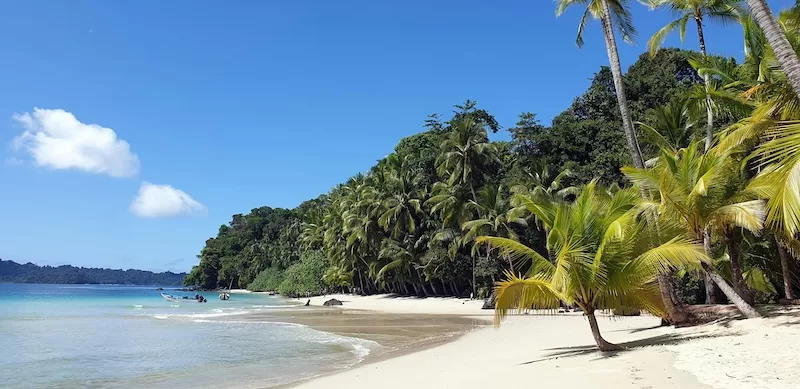
Signing a long lease before understanding seasons
The sunny house in January might become a swamp of humidity or noise after the rains arrive.
Better move: Visit the property at different times of day. Ask neighbors how the wet season affects roads, insects, and noise.
Underestimating transportation needs
Life without a car can be bliss in the capital but frustrating along rural coasts or highlands.
Better move: Before renting, “trial commute” to daily needs: markets, gyms, medical centers. Count the minutes, not just the miles.
Expecting imported habits to transfer seamlessly
Preferring the same brands or pace as back home adds cost and friction.
Better move: Learn to love local alternatives: fresh produce, local snacks, house-made salsas. Prioritize experiences over imported convenience.
Focusing only on expat communities
It’s easy and comforting. It can also delay real belonging.
Better move: Mix your circles. Attend a Spanish meetup, join a local charity day, shop where neighbors shop, not just where expats gather.
Assuming everyone speaks English in services that matter
Bank counters and medical visits can turn confusing fast.
Better move: Know key Spanish phrases for health, housing, and money. Bring written notes for appointments. Use translation apps as backup.
Doing paperwork solo and guessing the rules
Immigration and legal norms differ. Mistakes slow everything down.
Better move: Hire a reputable immigration lawyer and follow their sequence. They protect time, money and peace of mind.
Thinking cheaper = better
Low rent sometimes hides distance, weak internet, or unreliable utilities.
Better move: Balance budget with comfort: reliable water, decent Wi-Fi, safe area. Savings mean little if daily life becomes stressful.
Overpacking life from home
Shipping containers full of “just in case” items become expensive regrets when you discover local equivalents or new tastes.
Better move: Bring essentials and sentimental things. Buy most furniture and household goods once you understand your actual needs.
Expecting instant familiarity
Some expats rush to feel settled, then panic when the adjustment takes time.
Better move: Give yourself a grace period. Celebrate small wins: first local friend, first conversation fully in Spanish, first favorite bakery.
Read More Like This: Top 10 Things to Know if You’re Moving to Panama
Pre-Move Checklist for a Smooth Start
Getting ready for expat life in Panama works best when preparation feels like curiosity, not paperwork. The following steps help create a foundation strong enough to make the transition smooth and satisfying.
1.Spend 4–6 weeks living like a local
Rent an Airbnb in Panama City, then try a casita in Boquete and a beach spot near Coronado or Pedasí. Wake up with different weather patterns. Shop in each town’s market. Test internet speeds, water pressure and grocery availability firsthand. Short tourist trips hide the details. An extended stay reveals them.
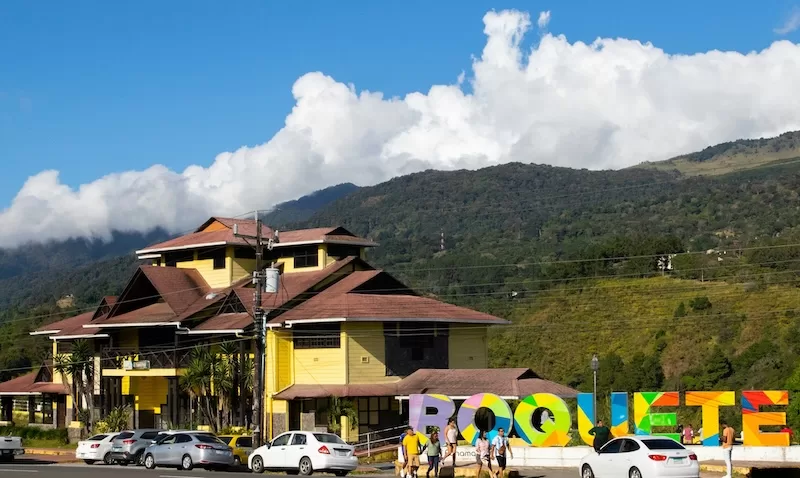
2.Build a budget that reflects the first chapter, not the fantasy
Include rent deposits, furniture or appliances if housing comes only semi-furnished, utility hookups, SIM cards, health insurance, groceries, transport, and the surprise costs that come with learning a new place. Add a cushion for three to six months. Panama rewards planners.
3.Choose your visa strategy early
Decide among pathways like Pensionado or Friendly Nations. Gather all key documents well before departure: background checks, apostilles, proof of income, passport renewals. A reliable immigration lawyer becomes your translator for legal expectations and appointment timing.
4.Match healthcare to location
If you will live inland, check how far the nearest major hospital is. In coastal areas, some treatments require trips to the capital. Research insurance policies that cover private care if peace of mind matters to you. Visit a local clinic during your initial scouting to see how wait times and service feel.
5.Rent first, buy later
Walk neighborhoods at different hours. Listen for nightlife noise. Notice flood lines during rainy season. If a place looks perfect, visit again in the afternoon heat. Inspect rental agreements with a local attorney, especially for maintenance responsibility and lease-break clauses. Treat real estate as a second-chapter decision.
6.Learn Spanish with real goals
Start with just enough to handle the market, the pharmacy and polite small talk. Then build up through community classes, language meetups, or news radio playing in the background while you make breakfast. Spanish unlocks deeper friendships and smoother errands.
7.Join local community networks before the move is final
Social media groups. Hiking clubs. Volunteer teams. Once in country, show up to real-world events: beach cleanups, trivia nights, local art fairs. Every new friend reduces stress and expands opportunity.
8.Create your exit strategy too
Sort banking permissions for international transfers. Confirm home-country tax requirements. Update wills and account beneficiaries. Think through shipping vs. selling belongings. Knowing how to return removes worry from the adventure.
Preparing thoughtfully turns unknowns into decisions. You start your new life not from scratch but from a place of confidence. That makes the first few months in Panama feel like a welcome change, not a test of adaptation.
FAQs
Q1. What is the average monthly cost for a single person living in Panama?
Excluding rent, an estimate is around $800 USD/month for a single person in 2025.
Q2. Is Spanish essential to living in Panama, and how quickly should I learn it?
Spanish is not strictly essential in major expat zones, but it greatly improves daily life, social integration and access to local services. Even conversational Spanish (market chats, basic paperwork) makes a difference. Consider a language class before or soon after arrival.
Q3. Can a foreigner easily buy property in Panama?
Yes. Foreign nationals have the right to buy real estate in most parts of Panama. As with any overseas property purchase, working with a reputable local attorney is strongly advised.
Q4. How does taxation work for expat income in Panama?
Panama uses a territorial tax system: generally, only income earned within Panama is taxed locally, while foreign-source income may be exempt.
Q5. What major costs tend to be overlooked by new expats?
Some frequently underestimated costs: condo or HOA fees, air-conditioning utility surges, seasonal flooding in some areas, Internet outages in smaller towns, medical evacuation coverage for remote locations. Building a buffer and exploring local service reliability prevent surprises.
Q6. How long does it take to feel settled?
Most expats say it takes 3–6 months to understand routines, meet neighbors and feel grounded. Joining local groups speeds up the process.
Q7. What healthcare options do expats rely on?
In Panama City, private hospitals offer strong care. Smaller towns rely on local clinics for everyday needs, with occasional trips to the capital for specialist services.
Q8. How safe is Panama for expats and what precautions should I take?
Panama is considered relatively safe in many regions, especially known expat areas. But common-sense safety applies: avoid flaunting valuables, stay alert in busy public transportation, check neighborhood security, and understand local traffic and pedestrian norms (which can differ widely from home).
Q9. Can I bring my pets?
Yes. Panama has a pet import process that includes vaccinations, vet certificates and advance notification. Many rentals allow pets, especially outside city centers.
Q10. Do I need a car?
In the capital, Metro lines, buses and ride-shares make daily life doable without one. In highland and beach areas, a car or scooter often becomes part of freedom and convenience.
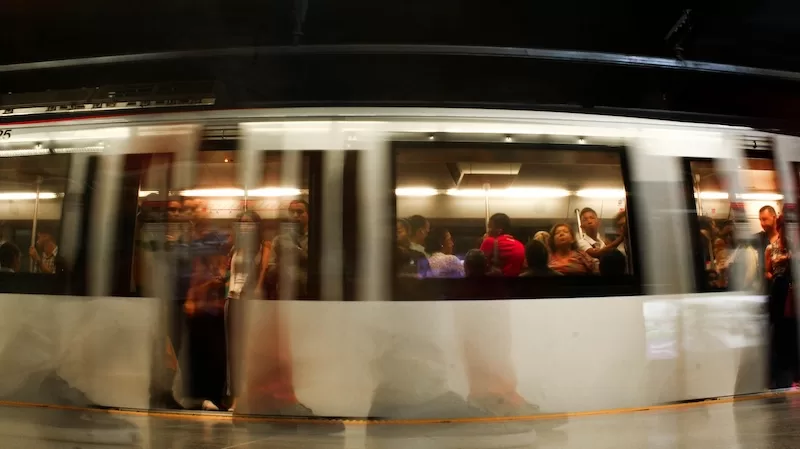
Q11. Will I be able to find familiar groceries or products?
In large supermarkets you will find many U.S. and European brands, though imports cost more. Local markets fill most of the pantry with affordable fresh produce.
Q12. Can I move to Panama and keep my remote job abroad?
Yes. Many expats in Panama earn income from outside the country while living locally. Because Panama uses a territorial tax system, foreign-source income may be exempt (if structured correctly). Just verify visa status, internet reliability, and that your housing suits remote-work needs.
A Life Rewritten, One Ordinary Day at a Time
Choosing where to live in Panama as an expat means choosing the pace, the view, and the budget that shapes each day. It might be a high-rise in Panama City with coffee to-go while the Metro zooms below. Or a garden casita in the highlands where mornings start cooler and expenses stay comfortable. Or a beach home where saltwater becomes part of the weekly routine and time feels wider.
Costs shift, routines evolve, and a sense of home builds slowly through familiar routes to the market and greetings exchanged at the bakery. The practical details you measure now become the comfort you feel later. When sunsets start to look like they belong to you, that is when expat life in Panama stops feeling like an experiment and starts feeling like a life well chosen.
If this guide helped you picture a new version of home, stay connected. Download our Ultimate Panama Handbook. Explore more of what Panama can offer. The future you want might be waiting here. All it needs now is your arrival.
And if this sparked ideas for your next chapter, consider signing up for our newsletter. It is where we highlight new countries, underrated cities, cost comparisons, and tools that help you make informed decisions.Parte inferior do formulário
Contact Author
"*" indicates required fields
Stay Ahead on Every Adventure!
Stay updated with the World News on Escape Artist. Get all the travel news, international destinations, expat living, moving abroad, Lifestyle Tips, and digital nomad opportunities. Your next journey starts here—don’t miss a moment! Subscribe Now!
